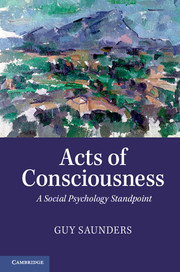Book contents
- Frontmatter
- Contents
- Preface
- Acknowledgements
- Introduction
- Part I To be conscious
- Part II To have consciousness
- 4 ‘What is it like to be a bat?’ (Nagel)
- 5 Treatments of subjective conscious experience in the arts
- 6 A captive mind
- Part III To know consciously
- Conclusions
- Notes
- Further reading, viewing and listening
- References to films, paintings and other artworks
- Bibliography
- Index
4 - ‘What is it like to be a bat?’ (Nagel)
Published online by Cambridge University Press: 05 July 2014
- Frontmatter
- Contents
- Preface
- Acknowledgements
- Introduction
- Part I To be conscious
- Part II To have consciousness
- 4 ‘What is it like to be a bat?’ (Nagel)
- 5 Treatments of subjective conscious experience in the arts
- 6 A captive mind
- Part III To know consciously
- Conclusions
- Notes
- Further reading, viewing and listening
- References to films, paintings and other artworks
- Bibliography
- Index
Summary
I’m going to discuss Nagel’s wonderful question, but first I want you to try to imagine what it is like to be someone else.
‘I wouldn’t be me if I were you!’
What is it like to be someone else?
Ask ‘What is it like to be someone else?’ Think about someone you know well and report what it is you end up doing. Make notes on how you set about the question and on anything you did to try to work out how it is for them.
How did it feel to be them? Could you imagine it? What were the difficulties you had with the exercise, if any, and what did you do to overcome them? You may have turned the question around and asked another related question: ‘What is it like to be me?’ You may believe that you have experience and that there is something it is like to be you. What follows is a brief synopsis of Nagel’s key points asking ‘Why did Nagel choose bats?’ After this there is a commentary on Nagel’s article; and this, in turn, is followed by a discussion about how his question – and the question in the exercise – relates to this book. All quotations in the following commentary are from Nagel’s original article.
Why did Nagel choose bats?
Nagel illustrated the connection between subjective conscious experience and point of view with a telling example: the bat. Nagel assumes that we believe that bats have experience; that there is something it is like to be a bat. Bats are mammals like us, so why would they not have experience as we do? They are not such a simple creature as to cause us to doubt that they have experience. But also he chose bats because they have a very different way of finding their way around called echolocation. They have sensory apparatus so different from us and it is this that allows Nagel to pose the problem of point of view and experience so vividly.
- Type
- Chapter
- Information
- Acts of ConsciousnessA Social Psychology Standpoint, pp. 139 - 163Publisher: Cambridge University PressPrint publication year: 2014



